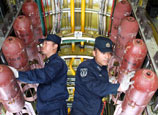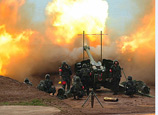
 |
| Chinese actress Yang Mi advertises Lumi, a collagen drink which fights aging (China.org.cn) |
More young Chinese graduates are turning to plastic surgery in order to increase their chances of finding a job and improving their life, according to a spokesperson from Beijing MyLike Hospital. The trend is indicative of the increasing social pressures facing the country's youth, with both domestic media and foreign influences playing a part in fuelling the demand for plastic surgery in China. But the growth of the country's plastic surgery industry has brought problems as well as perceived opportunities.
Pressures and problems
The number of graduates in 2012 reached 6,247,000, compared to 6,081,565 in 2011, according to the National Bureau of Statistics of China; and with a slowing economy more of these graduates are expected to turn to surgery in an effort to become more competitive in a tough job market.
The Time article "College Graduates in China Find It Increasingly Difficult to Find Jobs", by Gu Yongqiang, describes the struggle encountered by young graduates, especially this year. The number of graduates is the largest recorded and consulting firm MyCos Data estimates that only 35 percent of future graduates had secured a job by April.
Plastic surgery remains popular in China, despite the number of failed operations. Approximately 20,000 complaints are recorded each year, according to the latest report by the China Consumers' Association, which denied a request for up to date data.
The most recent controversy involved a 20-year–old woman who became blind in April when a "surgeon" injected ossein, the collagen component of bone, in her nose during a nose surgery, according to the website of the People's Daily, the official newspaper of the Communist Party of China. The so-called surgeon had no surgical experience, having previously only worked in a beauty salon. According to doctors at the Shanghai Changzheng Hospital, it is unlikely that the woman will ever recover her sight. Plastic surgery is a relatively new and unregulated industry in China. When asked, the spokesperson of the Beijing Health Department was reluctant to give the exact number of hospitals that had the licenses required to practice, which indicates a lack of uniform regulations.

















 Dog survives after 30 hours buried in debris
Dog survives after 30 hours buried in debris


![]()
